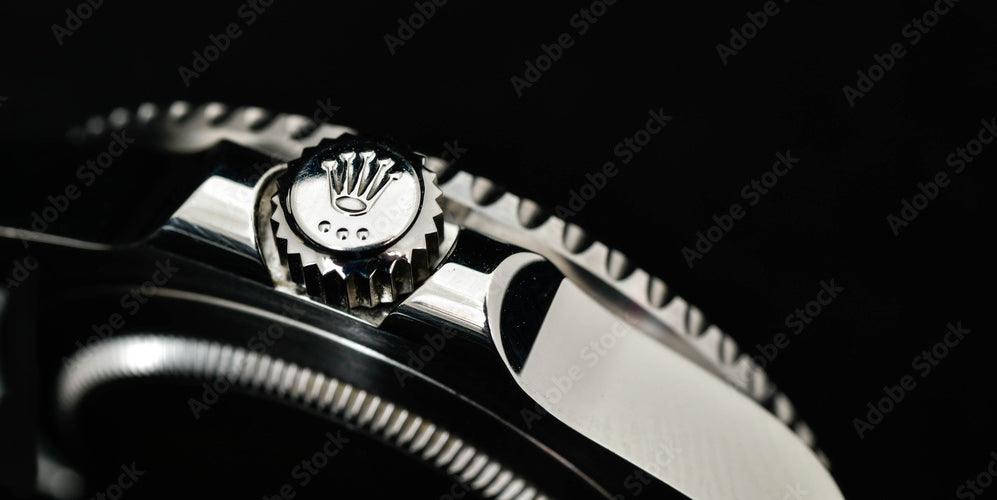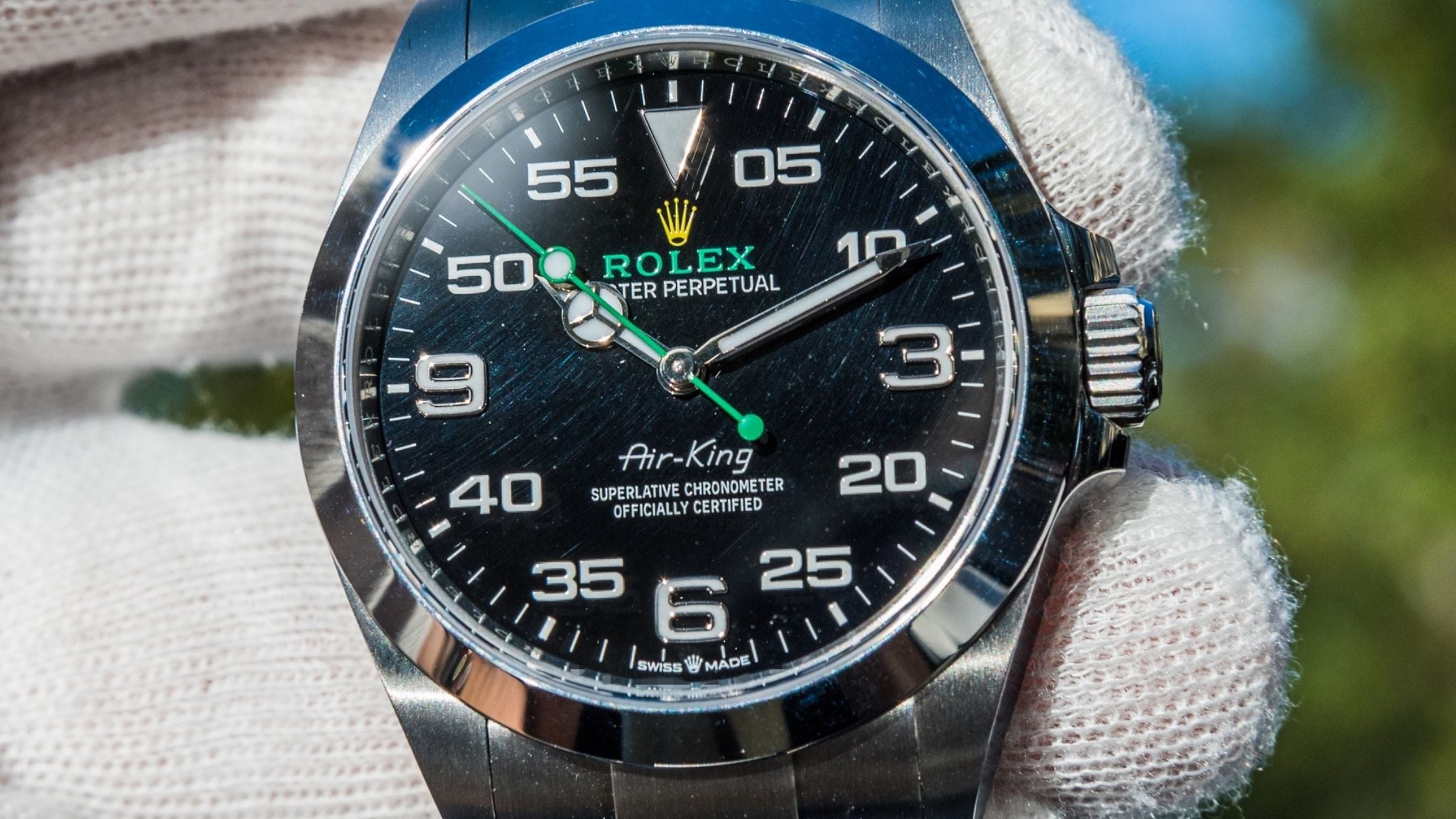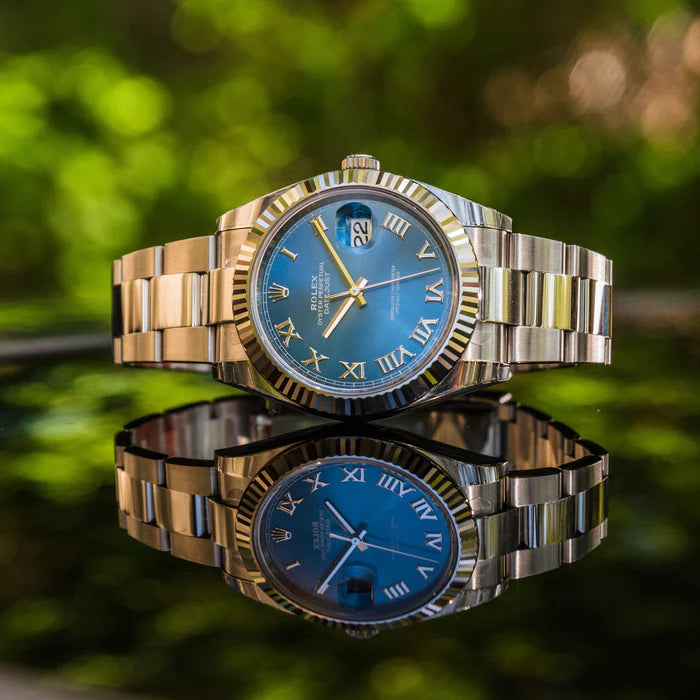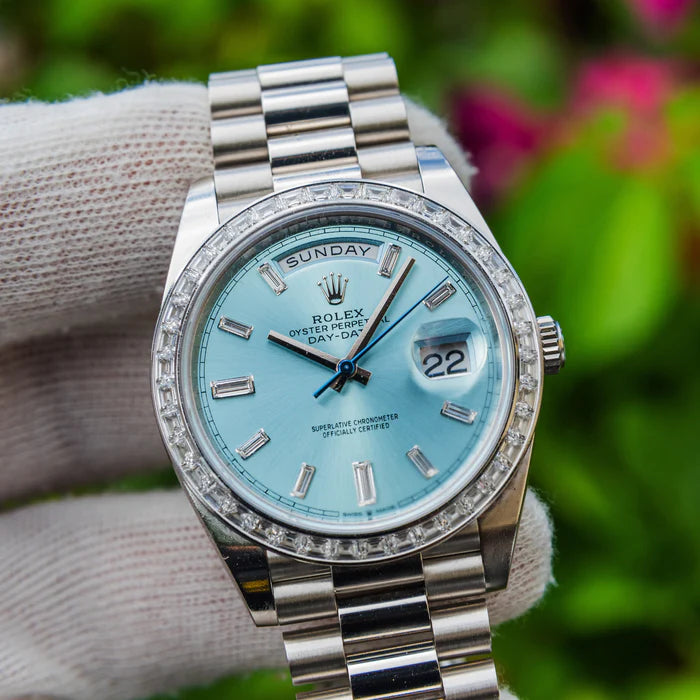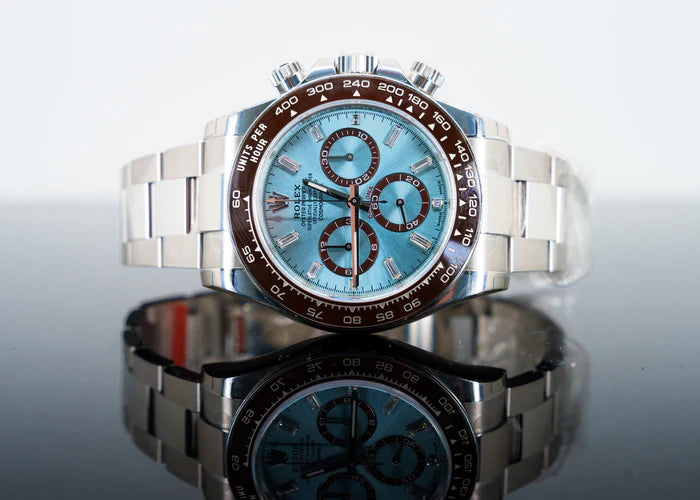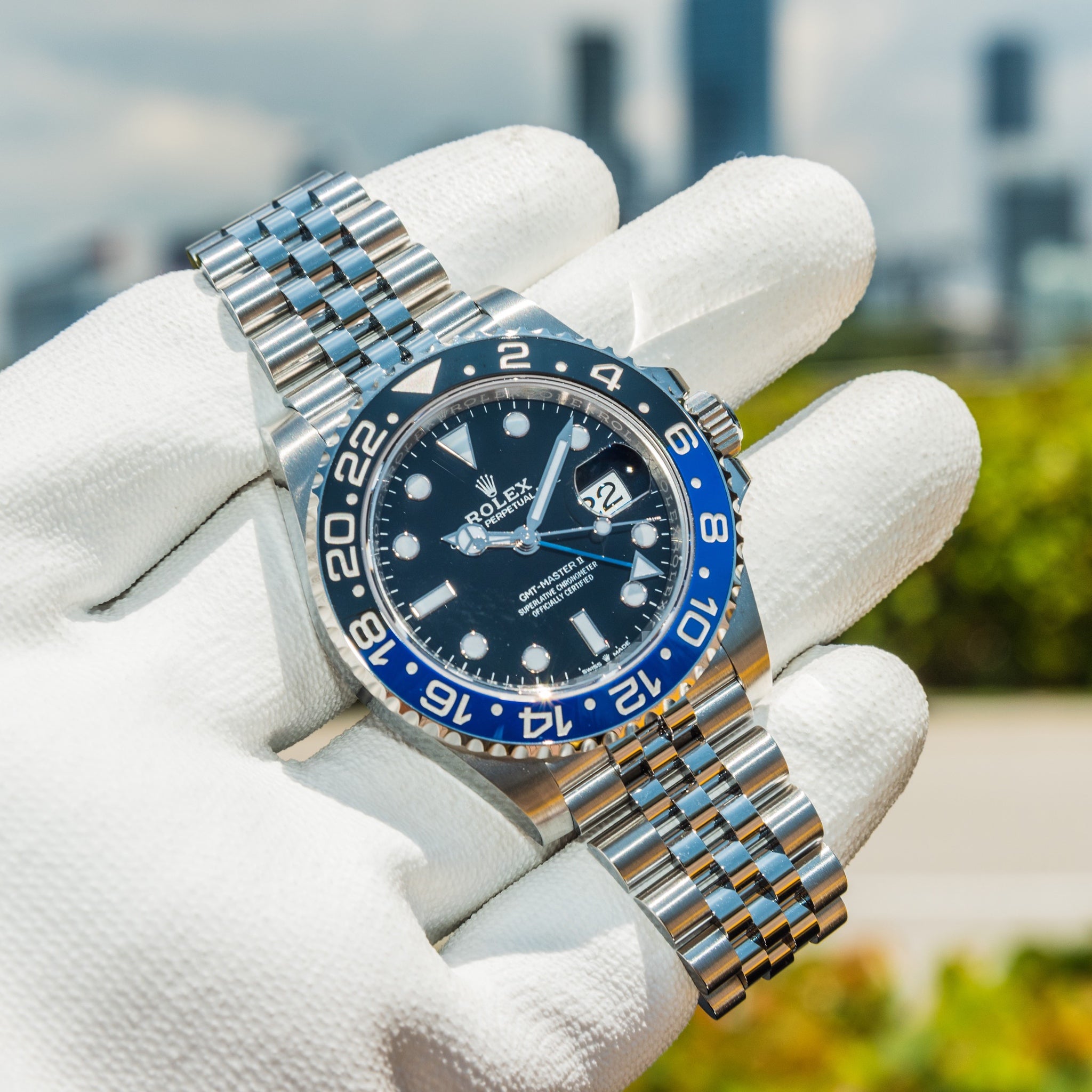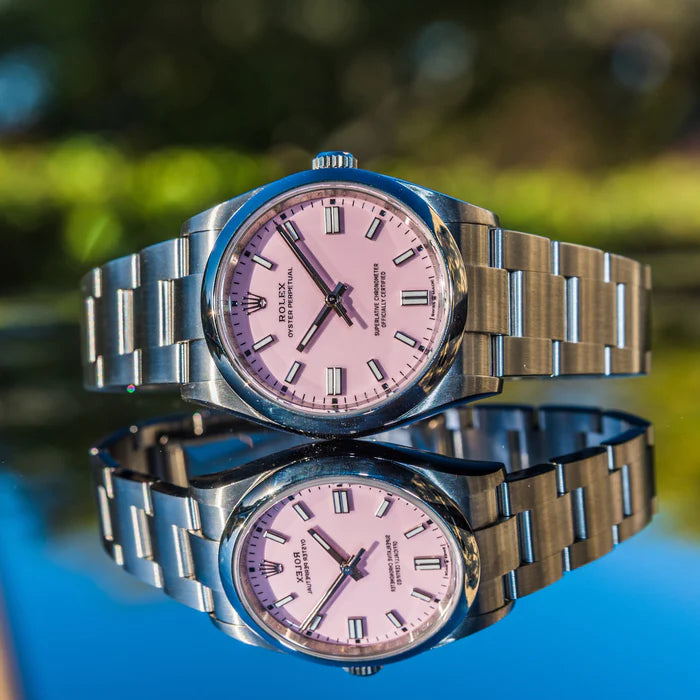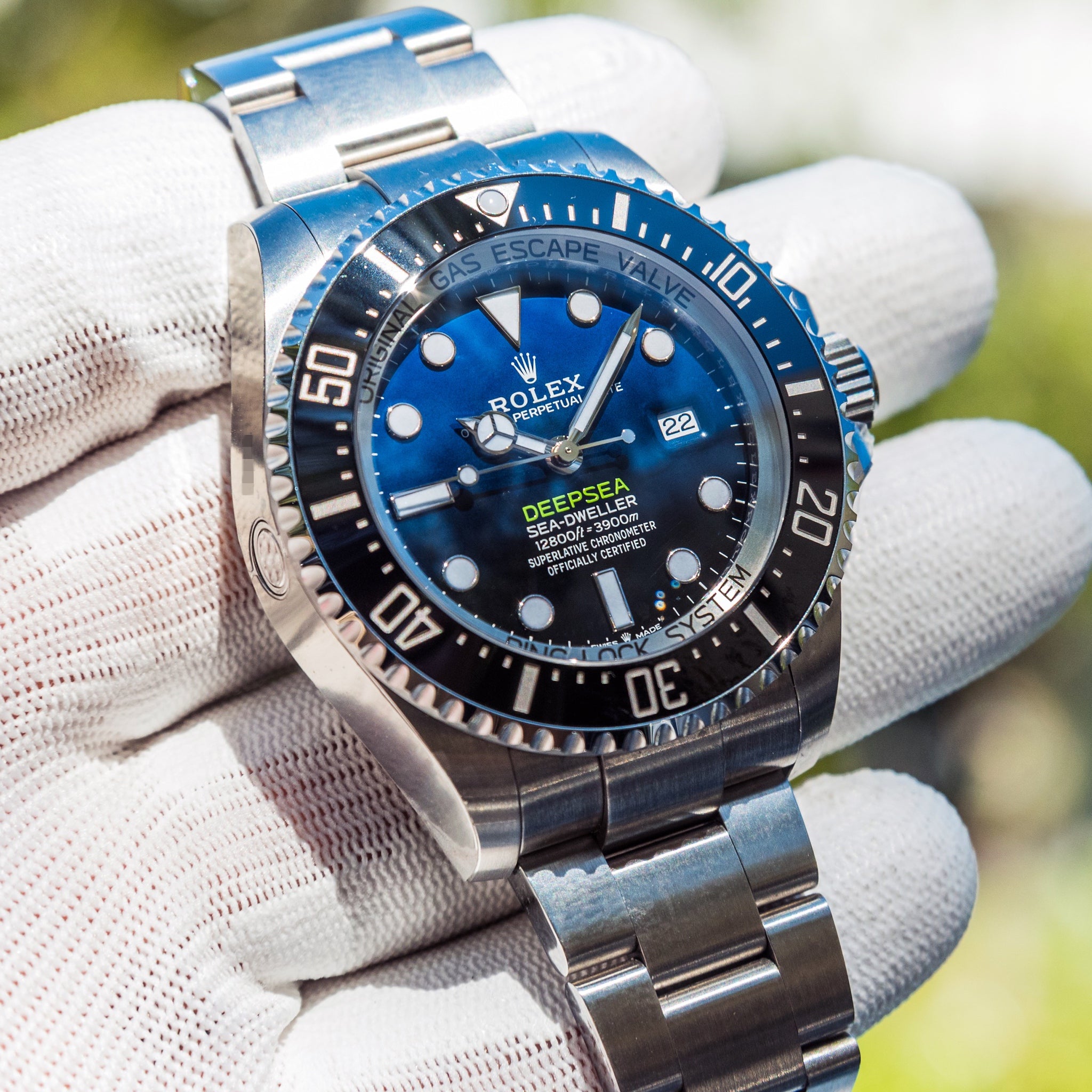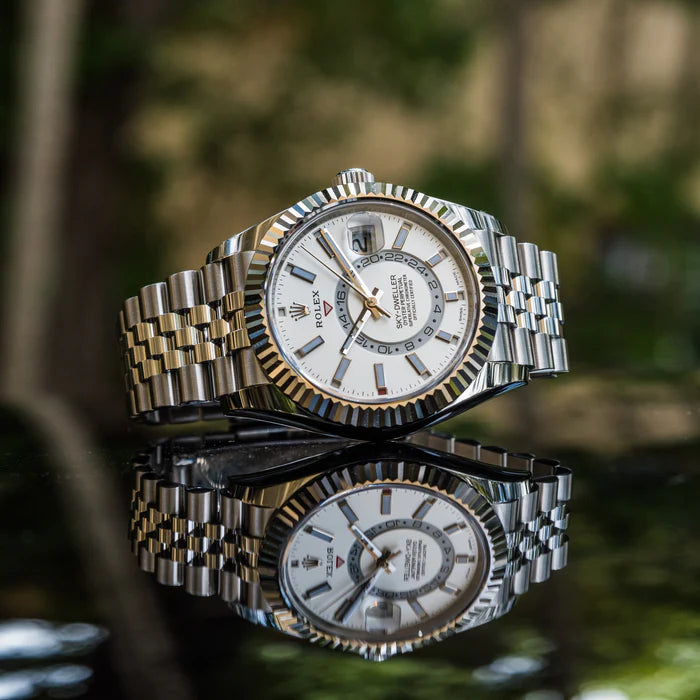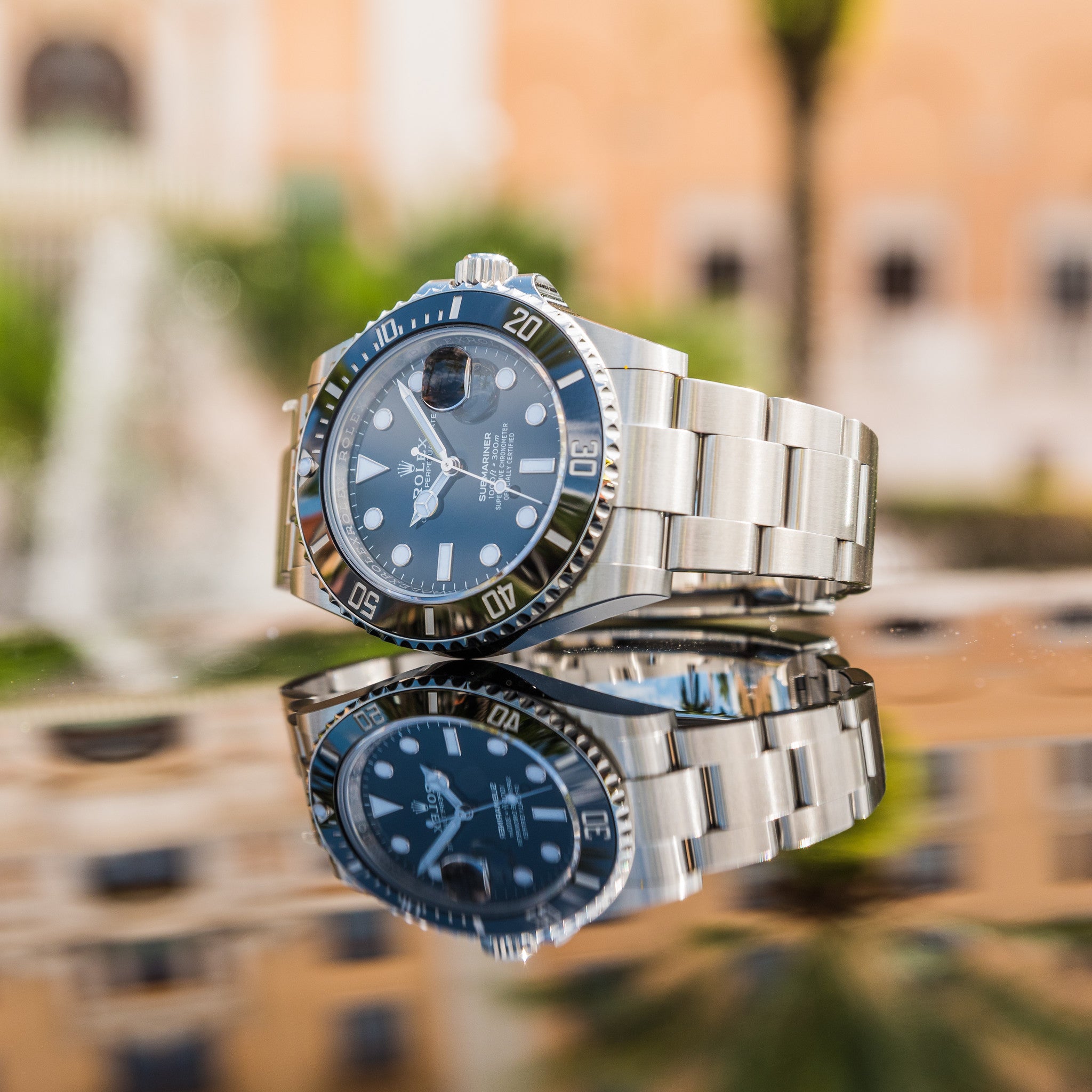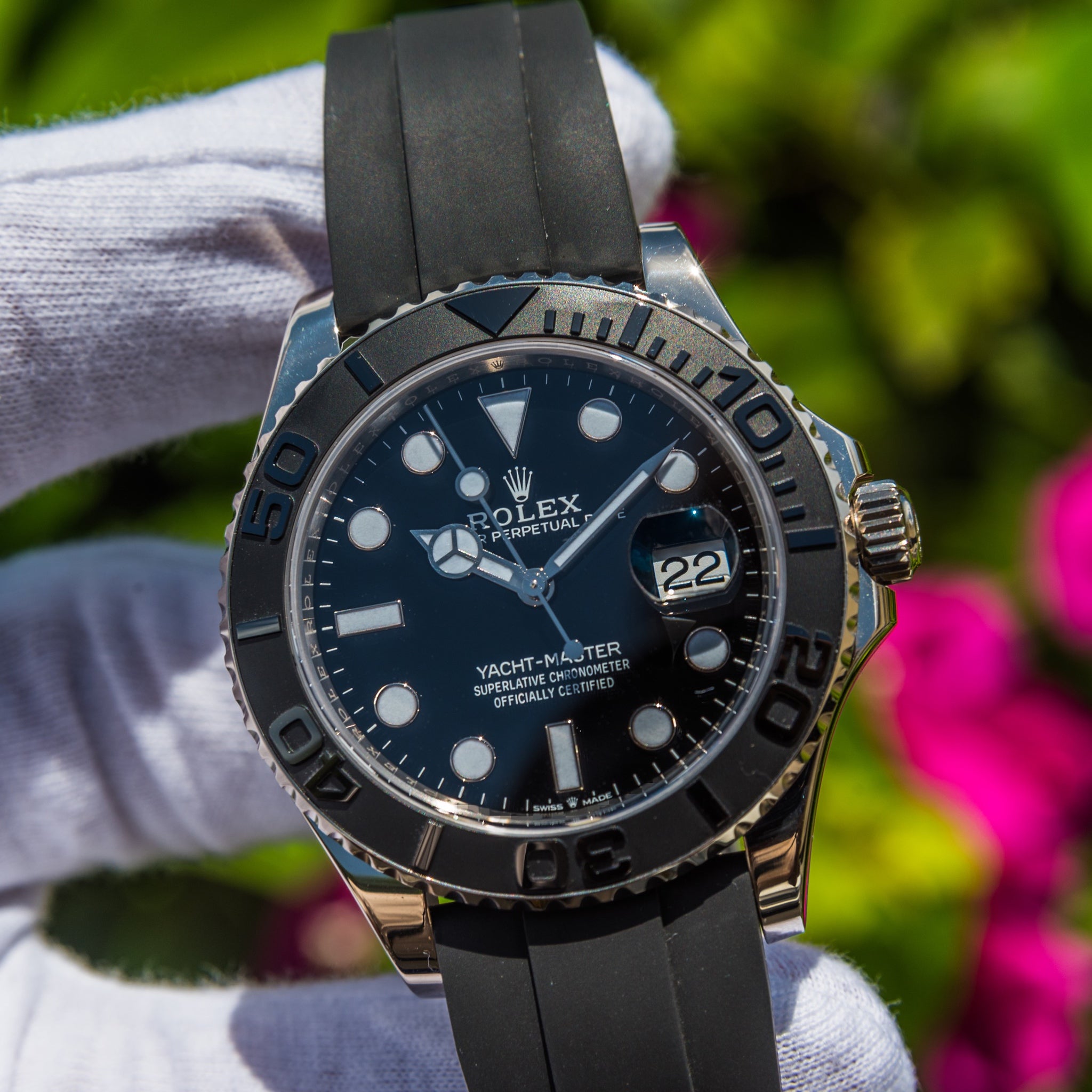Filters
Why G&G Timepieces Is The Best Place to Buy a Rolex
Authenticity Guaranteed:We make sure that every Rolex we sell is 100% authentic. Our team of experts carefully inspects each watch to guarantee its quality, so you can trust that you're getting the real thing.
Wide Selection:Whether you're looking for a classic model like the Submariner or something more unique like the Daytona, we offer a wide selection of Rolex watches to choose from. We carry both new and pre-owned models, so there’s something for everyone.
Trusted Experience:With years of experience in the luxury watch industry, we are known for our dedication to customer service and expertise. Our knowledgeable staff can help you find the perfect Rolex to match your style and needs.
Competitive Pricing: We offer competitive pricing on all our Rolex watches. You can find luxury timepieces at great prices, whether you're buying a new release or a vintage model.
After-Sales Support: Our relationship with you doesn’t end after you make your purchase. We offer after-sales support, including maintenance and service for your Rolex, to keep your watch in top condition for years to come.
Rolex Watches: A Quick History
Rolex was founded in 1905 by Hans Wilsdorf in London. His goal was to create wristwatches that were both stylish and very accurate. In 1910, Rolex became the first wristwatch to receive a Swiss Certificate of Precision, showing just how reliable their watches were. By 1919, Rolex moved to Geneva, Switzerland, where it still operates today.
In 1926, Rolex introduced the Oyster, the first waterproof wristwatch. To prove it worked, a swimmer wore it while crossing the English Channel. In 1931, Rolex created the Perpetual movement, which was the first self-winding system powered by the wearer’s wrist movement.
In 1953, Rolex released the Submariner, the first diving watch that was water-resistant up to 100 meters. That same year, Rolex watches were worn during the first successful climb of Mount Everest. Over the next years, Rolex launched more iconic models, like the GMT-Master for pilots in 1955 and the Daytona for race car drivers in 1963.
During the 1970s and 1980s, Rolex introduced the Explorer II in 1971 and the Sea-Dweller in 1978, a diving watch that could go as deep as 4,000 feet. In the 2000s, Rolex kept innovating, creating the Parachrom hairspring in 2000, which made watches more shock-resistant. In 2012, Rolex introduced the Sky-Dweller, which showed two time zones and had an annual calendar.
Today, Rolex is one of the most well-known luxury watch brands in the world, continuing to combine style, durability, and precision in every watch they make.
Guide to Rolex Key Terms
Here’s a simple guide to understand some common terms for Rolex watch bracelets and clasps.
Bracelets and Bands:
- Argentinian bracelet: A President bracelet made in Argentina with small changes to the buckle.
- Hecho in Mexico: A stamp on President bracelets made in Mexico.
- Integral: An older bracelet with square-shaped links, found on Oyster quartz models.
- Jubilee: A fancier bracelet with three smaller center links, giving it an elegant look.
- Oyster: A bracelet with one big center link, found mostly on sporty Rolex watches.
- Pearlmaster: A high-end gold bracelet for luxury watches, based on the Oyster style.
- President: A luxury bracelet made only in gold, with shorter center links than the Oyster.
- Strap: A leather band with a traditional buckle.
Rolex Clasp Terms:
- Oysterlock clasp: Rolex’s newest clasp, is designed to be extra secure and rust-proof.
- Glidelock clasp: Like the Oysterlock but longer, this clasp is made for divers to adjust the band easily over wetsuits.
- Rolex buckle: A traditional buckle found on leather bands, but not used as much anymore.
- Oysterclasp: Looks like the Oysterlock but doesn’t have the extra safety lock. It’s used on classic models like the Datejust.
- Hidden Crownclasp: A clasp that makes the bracelet look like a smooth, unbroken chain.
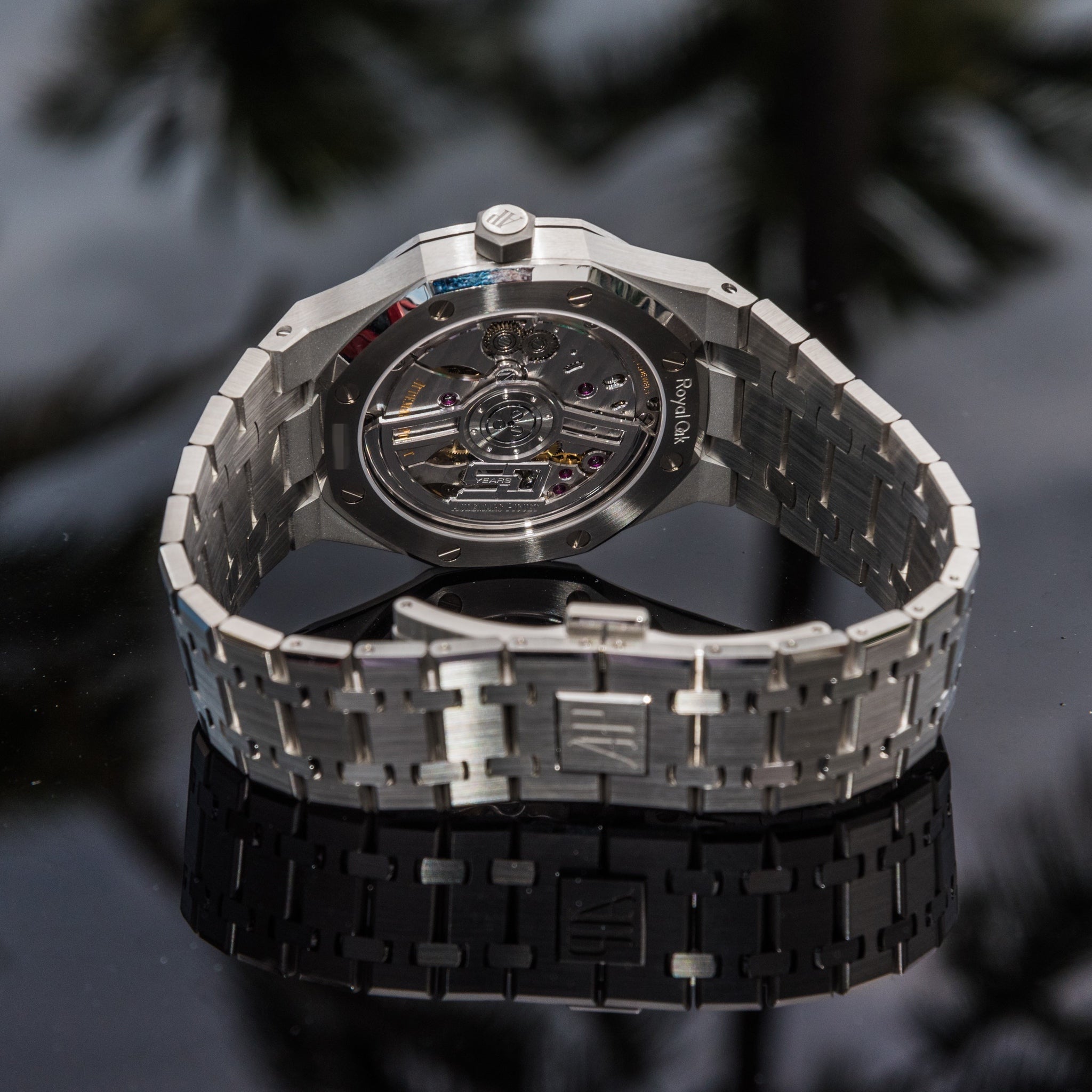
Sell ▸ trade ▸ source
At G&G we are happy to buy your current timepieces at top dollar. You're also welcome to upgrade your timepiece to something in our collection. We welcome your trade.
Trying to find that piece you have been looking for? We'll find it for you even if its outside of our collection. Inquire for it below.
Guide to Rolex Key Terms
Rolex Key Features
Dials
Rolex dials come in many different colors and styles. You can find classic colors like black, white, and silver, as well as unique colors like green and blue. Some dials have diamonds as hour markers, while others use numbers or Roman numerals. The dials are covered with a strong, scratch-resistant sapphire crystal, which keeps them looking clear and new for a long time.
Movements
Rolex is famous for its very accurate movements, which make the watches run smoothly. Most Rolex watches are automatic, meaning they wind themselves as you move your wrist. These movements are built to be very precise and reliable. Many Rolex movements are certified as chronometers, meaning they meet high standards of accuracy. They also have special parts like the Parachrom hairspring, which makes the watch more resistant to shocks and changes in temperature.
Sizes
Rolex watches come in different sizes to fit all kinds of wrists. Some models, like the Datejust, range from 31mm to 41mm. The Oyster Perpetual comes in sizes from 28mm to 41mm. Sportier models, like the Submariner or GMT-Master II, usually come in 40mm or 42mm, making them great for both men and women.
Materials
Rolex uses high-quality materials to make their watches. Most are made from Oystersteel, which is a special kind of steel that doesn’t rust and stays shiny. Rolex also uses gold (yellow, white, and rose gold) and platinum for its luxury watches. Some models mix steel and gold together, called Rolesor. Rolex also uses Cerachrom for bezels, which is a tough material that won’t scratch or fade over time.
Rolex Oyster Perpetual
The Oyster Perpetual is the direct descendant of the original Oyster, Rolex’s waterproof wristwatch from 1926. It combines Rolex’s famous waterproof Oyster case with the self-winding Perpetual movement. Known for its simplicity and elegance, it serves as the foundation for other Rolex models.
Rolex Sea-Dweller
Built for the demands of deep-sea diving, the Rolex Sea-Dweller is waterproof to a depth of 4,000 feet (1,220 meters) for the standard model and 12,800 feet (3,900 meters) for the Deepsea variant. It features a helium escape valve for decompression and is a tool watch for professional divers.
Rolex Submariner
The iconic diver’s watch since its introduction in 1953. Waterproof, the Rolex Submariner is known for its resistance to water and corrosion, initially waterproof to 100 meters (330 feet), now up to 300 meters (1,000 feet). It’s become synonymous with diving and underwater adventure.
Rolex FAQ's
Rolex watches are often considered good investments due to their ability to retain or increase in value over time. Some models, particularly limited editions or rare versions, appreciate significantly in value.
Authentic Rolex watches have several distinct characteristics: precise engraving, a smooth sweep of the second hand (not ticking), high-quality materials, and unique serial numbers. It's recommended to buy from authorized dealers or reputable sources to ensure authenticity.
Yes, like any mechanical watch, Rolex watches require regular maintenance. Rolex recommends servicing your watch every 10 years to ensure it continues running efficiently and maintains its durability.
With proper care and maintenance, a Rolex watch can last a lifetime and beyond. Many Rolex watches are passed down through generations due to their durability and timeless design.
Rolex watches with automatic movements (self-winding) typically don't need manual winding if worn daily. If left unworn for more than 48 hours, a Rolex may stop and can be manually wound by turning the crown clockwise about 20-30 times.
High demand and limited production can make some Rolex models difficult to find. Popular models like the Submariner, Daytona, and GMT-Master II often have long waiting lists due to their iconic status.

